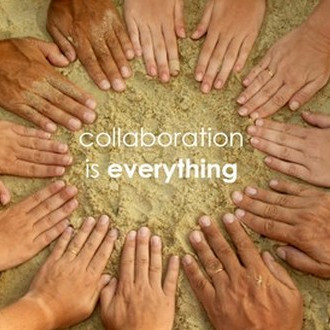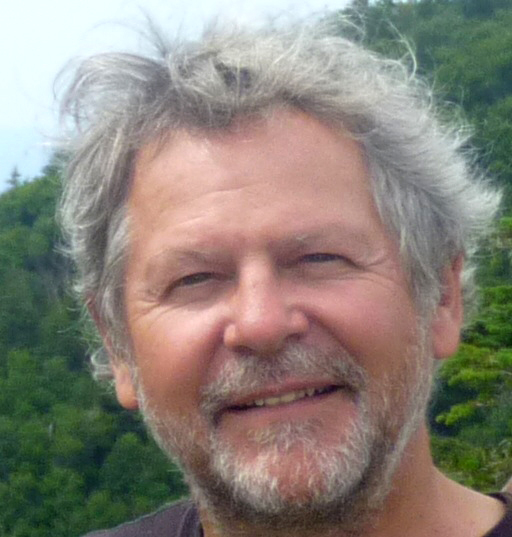¿Qué temas se deben considerar para el cambio de la matriz productiva de un país como Ecuador?
Este problema extremadamente complejo se lo plantea el equipo de investigación que trabaja en el Instituto de Altos Estudios Nacionales. Los investigadores del Buen Conocer son un equipo multidisciplinario, que llega al Ecuador desde cinco países distintos, y entre ellos suman décadas de experiencia estudiando sistemas de construcción de conocimiento alternativos al actual capitalismo cognitivo.
La próxima semana estos académicos dictarán una serie de seminarios, partiendo de sus diferentes áreas de experiencia.
George Dafermos, de Grecia, tratará el tema de “¿Por qué las patentes inhiben la innovación?”. Janice Figueireido, de Brasil, dará “Una Introducción al P2P y el Procomún”, conceptos importantes del proyecto en el IAEN. Daniel Araya, de Canadá, hablará acerca de los “Paradigmas de la Economía del Conocimiento”, y los problemas que enfrenta la educación en una sociedad post-industrial. John Restakis, de Italia/Canadá, tratará el tema “Cooperativas Sociales y Cuidado Social: Modelos Civiles para los Servicios Públicos,” hablando de su experiencia con las cooperativas italianas. Para concluir, Jenny Torres, de Ecuador, dictará el seminario “Hardware y Conectividad: Sostenibilidad y Soberanía sobre las Infraestructuras Tecnológicas”, donde hablará de redes libres y hardware abierto.
Cada seminario tendrá certificación, y por ende se pide que los interesados se registren individualmente con el profesor de la clase a la cual deseen asistir. Todos los seminarios son gratuitos y abiertos al público, y todas se ofertan en el Aula 5 del IAEN (Av. Amazonas N37 – 271 y Villalengua).
A continuación las descripciones detalladas y horarios específicos de cada clase:
¿Por qué las patentes inhiben la innovación?
Profesor: George Dafermos (biografía)
Cuándo: Miércoles 18 de diciembre, 09h00 a 13h00
Idioma: Inglés
Registros: Contacte a George Dafermos
En este seminario tomaremos una postura crítica frente a la razón de ser de la institución de las patentes, desde un punto de vista de la economía política. Estudiaremos los datos empíricos que hayan de los efectos que tienen las patentes sobre la innovación y la productividad, para asegurarnos de hasta que punto existen supuestas razones económicas para tenerlas, y el debido efecto de tal.
Introducción al P2P y el Procomún
Profesora: Janice Figueiredo (biografía)
Cuándo: Jueves 19 de diciembre, 09h00 a 13h00
Idioma: Español
Registros: Contacte a Janice Figueiredo
El seminario se enfocará en los siguientes temas: principios fundamentales del P2P (peer-to-peer, o redes entre pares); el procomún (the Commons); la producción entre pares; la gobernabilidad entre pares; procesos de construcción colectiva (crowd-sourcing): cómo la inteligencia colectiva puede cambiar el mundo; y ciudades del compartir colaborativas: prácticas de producción entre pares de los procomunes urbanos.
Paradigmas de la Economía del Conocimiento
Profesor: Daniel Araya (biografía)
Cuándo: Jueves 19 de diciembre, 14h00 a 18h00
Idioma: Inglés
Registros: Contacte a Daniel Araya
Mezclar discursos sobre la economía del conocimiento y la reforma educativa ahora se asocian con suposiciones contradictorias sobre la naturaleza y la función de la educación en una sociedad post-industrial. Tal vez la hipótesis más prominente actual es que la educación formal debe servir principalmente como una especie de fábrica para el trabajo cognitivo. A pesar de las lecturas monolíticas de la economía del conocimiento, quedan preguntas abiertas sobre la definición y alcance de esta economía. La actual reforma neoliberal de la educación en los EE.UU. se basan en lecturas superficiales de lo que es una economía del conocimiento. Exploraremos tres alternativas: la Red de Economía (tomando ideas de Yochai Benkler (2006), Axel Bruns (2008), y Michel Bauwens (2006) entre otros); la Economía Creativa (articulado por Richard Florida (2002), Charles Landry (2000) y John Howkins (2001) entre otros); y la Economía Verde (como explicado por Brian Milani (2000), Jeremy Rifkin (2011), Herman Daly (2010) y otros).
Cooperativas Sociales y Asistencia Social: Modelos Civiles para los Servicios Públicos
Profesor: John Restakis (biografía)
Cuando: Viernes 20 de diciembre, 09h00 a 13h00
Idioma: Inglés
Registros: Contacte a John Restakis
Este seminario examina el papel cambiante del Estado con respecto al cuidado social, y cómo los modelos cooperativos y de economía solidaria están siendo usados para proveer nuevas formas de servicios públicos/civiles. La clase explorará la naturaleza de la asistencia social; las bases socioeconómicas de la economía popular; cómo los modelas de cooperación reforman y extienden las posibilidades de la provisión de servicios sociales; el rol central que tiene la reciprocidad en el servicio social; y los modelos emergentes de asociaciones entre el estado y la sociedad civil para transicionar de un Estado proveedor de bienestar a un nuevo modelo de Sociedad del Bienestar.
Hardware y Conectividad: Sostenibilidad y Soberanía sobre las Infraestructuras Tecnológicas
Profesora: Jenny Torres (biografía)
Cuando: Viernes 20 de diciembre, 14h00 a 18h00
Idioma: Español
Registros: Contacte a Jenny Torres
Los términos “libre” y “código abierto” son frecuentemente usados como equivalentes para hablar de proyectos de software. El software open source se ha convertido en una pieza importante en el desarrollo de programas de software, al poderse licenciar de una manera que permita la libertad de modificar, mejorar, compilar y redistribuir el código fuente. Así mismo, hay un movimiento de cultura de “código abierto”, inspirada por preocupaciones similares, que se ha establecido en comunidades de diseño de hardware electrónico. Surge la idea de Hardware Abierto (Open Source Hardware): hardware que también permite al usuario ver el diseño, estudiarlo, modificarlo, distribuirlo, fabricarlo y venderlo. Para tener tecnología sostenible, la apertura es un valor fundamental. La innovación, colaboración y comunidad son las palabras claves de esta implementación que permitan que surja un conocimiento abierto y común.What are the aspects that must be considered when thinking about changing the productive matrix of a country like Ecuador?
This is the complex problem that the FLOK team at the Instituto de Altos Estudios Nacionales university are tackling.
The researchers are a multidisciplinary team, who have gathered in Ecuador from five different countries, and between them have decades of experience studying alternative societal models.
Next week these researchers will give a series of seminars about their specific areas of expertise.
George Dafermos, from Greece, will teach about “Patents: Why Do They Hinder Innovation.” Janice Figueiredo, from Brazil, will give “An introduction to P2P and the Commons,” important concepts to the FLOK investigation. Daniel Araya, from Canada, will speak on “Paradigms of the Knowledge Economy,” as a look at the problems with current education reform in the U.S. and three alternatives. John Restakis, from Italy/Canada, will speak on “Social Co-ops and Social Care: Civil models for public services.” The last talk, by Jenny Torres, from Ecuador, is called “Hardware and Connectivity: Sustainability and Sovereignty over Technological Infrastructure.”
Each seminar will include certification, so potential students should register with each individual teacher. All the seminars are free and open, and will happen in Aula 5 of the IAEN (corner of Av. Amazonas N37 – 271 and Villalengua, Quito).
Here are detailed seminar descriptions:
Patents: Why Do They Hinder Innovation?
Teacher: George Dafermos (bio)
When: Wed. Dec. 18, 09h00 to 13h00
Language: English
To register: Contact a George Dafermos
In this seminar we will take a critical look at the raison d’être of the institution of patents from a political economy perspective: we will look at the existing empirical data on the effect of patents on innovation and productivity to ascertain the extent to which they affirm the supposed economic reasons underlying the patent institution as well as its intended effects.
An introduction to P2P and the Commons
Teacher: Janice Figueiredo (bio)
When: Thurs. Dec. 19, 09h00 to 13h00
Language: Spanish
To register: Contact Janice Figueiredo
The lecture will focus on the followng topics: Core P2P principles; the Commons; Peer Production; Peer Governance; Sourcing the Crowd: how collective intelligence can change the world; and Sharing and Collaborative Cities: Urban Commons-Based Peer Production.
Paradigms of the Knowledge Economy
Teacher: Daniel Araya (bio)
When: Thurs. Dec. 19, 14h00 to 18h00
Language: English
To register: Contact Daniel Araya
Conflating discourses on the knowledge economy (KE), educational reform is now married to contradictory assumptions about the nature and function of education in a postindustrial society. Perhaps the most prominent assumption today is that formal education should serve primarily as a kind of factory for cognitive labor. Despite monolithic readings of KE, however, there remain open questions about the definition and scope of the knowledge economy. Indeed, the central argument of this study is that contemporary US educational reform policies are based upon superficial readings of KE. Building on the work of Peters (2009b), this research explores four discrete “paradigms” of KE and considers their import for shaping US educational policy reform. Examining the genealogy of KE in the context of forecasts on postindustrial society, this study is intended as a contribution to scholarship on the political economy of education. In addition to neoliberal readings of KE, this research examines three alternative discourses on KE that necessitate unique programs for educational reform. These paradigms include:
-The Network Economy, as articulated by Yochai Benkler (2006), Axel Bruns (2008), Michel Bauwens (2006) and others.
-The Creative Economy, as articulated by Richard Florida (2002), Charles Landry (2000) and John Howkins (2001).
-The Green Economy, as articulated by Brian Milani (2000), Jeremy Rifkin (2011), Herman Daly (2010), and others.
Social Co-ops and Social Care: Civil models for public services
Teacher: John Restakis (bio)
When: Friday Dec. 20, 09h00 to 13h00
Language: English
To register: Contact John Restakis
This seminar examines the changing role of the state with respect to social care and the ways in which co-operative models are being used to provide new forms of civil/public services. The seminar will examine the nature of social care, the socio-economic foundations of the social economy; the ways in which co-operative models both reform
and extend the possibilities for the provision of social services; the central role of reciprocity in social care; and the emerging models for State/Civil partnerships that prefigure a transition from a model of Welfare State to a new model of Welfare Society.
Hardware and Connectivity: Sustainability and Sovereignty over Technological Infrastructure
Teacher: Jenny Torres (biografía)
When: Friday Dec. 20, 14h00 to 18h00
Language: Spanish
To register: Contact Jenny Torres
The terms “free” and “open source” are equivalent words originally applied to software projects. Open-source software has become an important part of the software development process, where the software is distributed and
licensed in a way that allows users to modify, improve, compile and further distribute its source code. A similar open-source culture movement, inspired by many of the same concerns, has taken shape among people involved in electronic hardware design efforts on a collaborative basis: the idea of Open Source Hardware (OSH). Open source hardware is hardware whose design is made publicly available so that anyone can study, modify, distribute, make, and sell the design or hardware based on that design.
For sustainable technology, openness is the focus value. Innovation, collaboration and community are key words that must assist this implementation in order to rise a common and open knowledge. The acceleration of knowledge is one of the main goals of achieving a free and sustainable hardware, which means sharing it and educating community. There is an educational value in seeing how a design works, making people more aware and appreciative of how things work, which is good for society.




